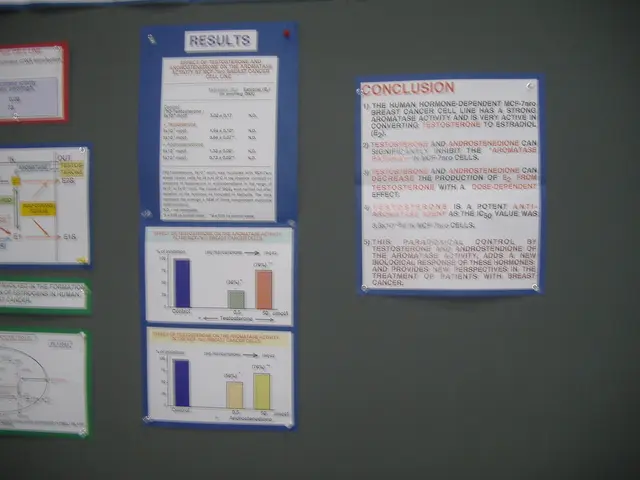Herbal Supplement Rhodiola Rosea's Impact on Mood and Emotional Health Improvement
Rhodiola Rosea, a plant native to the Arctic regions, is gaining recognition as a natural and holistic approach to boosting mood and emotional well-being. This adaptogenic herb, often found in supplements, stands out for its ability to reduce stress, anxiety, and depression symptoms while improving cognitive function under stress.
Mental health experts frequently recommend Rhodiola Rosea as part of a holistic approach to emotional health. Capsules or tablets with standardized extract are often recommended for consistent dosing.
Scientific studies support the claim that Rhodiola Rosea enhances mood and emotional well-being. A 2015 clinical study with mildly anxious participants found that taking Rhodiola rosea extract (200 mg twice daily) for 14 days significantly improved overall mood and reduced self-reported anxiety, stress, anger, confusion, and depression compared to placebo.
Animal and human studies have also shown that Rhodiola extracts and its active component, salidroside, interact with neuroendocrine-immune and neurotransmitter systems involved in depression, yielding antidepressant effects that are safe and well-tolerated in the short term.
One study compared Rhodiola to the SSRI sertraline and found that Rhodiola had fewer side effects, though somewhat less antidepressant effect, suggesting a favorable risk-benefit profile for mild to moderate depression.
In another clinical trial, standardized Rhodiola extract was administered to adults aged 18–70, resulting in significant reductions in mild to moderate depression symptoms, along with improvements in sleep and mood stability.
Additional studies have shown Rhodiola's ability to enhance mental performance, focus, reaction times, and working memory in stressful or high-demand situations, supporting mood through cognitive resilience.
Rhodiola’s adaptogenic properties also include reducing cortisol and inflammation, thereby improving emotional resilience and stress management, which indirectly benefits mood and mental health.
User experiences align with the scientific findings, often reporting reduced stress, anxiety, and mental fatigue, along with improved mood and mental energy. This convergence has encouraged the inclusion of Rhodiola in supplements aimed at both physical and cognitive performance, given the close link between mental state and overall well-being.
However, pregnant or breastfeeding women, and those with specific health conditions, should consult a healthcare provider before using Rhodiola Rosea. Taking Rhodiola Rosea in the morning or early afternoon is advisable to avoid potential interference with sleep.
Potential side effects of Rhodiola Rosea include dizziness, dry mouth, or restlessness. Unlike some synthetic alternatives, Rhodiola Rosea offers a gentler and more balanced way to enhance emotional health. Many individuals report a decrease in feelings of stress and anxiety after using Rhodiola Rosea.
By simultaneously enhancing mood stability and promoting emotional resilience, Rhodiola Rosea helps individuals navigate life's challenges with greater ease.
Read also:
- Trump's SNAP reductions and New York City Council's grocery delivery legislation: Problems for city residents highlighted
- Reducing dental expenses for elderlies in Sweden: Over 50% cut in charges for pensioners by the government
- Forty-year-old diet: A list of meal choices to savor
- Exiled Life's Conundrum: A Blend of Liberation, Disillusionment, and Distress







